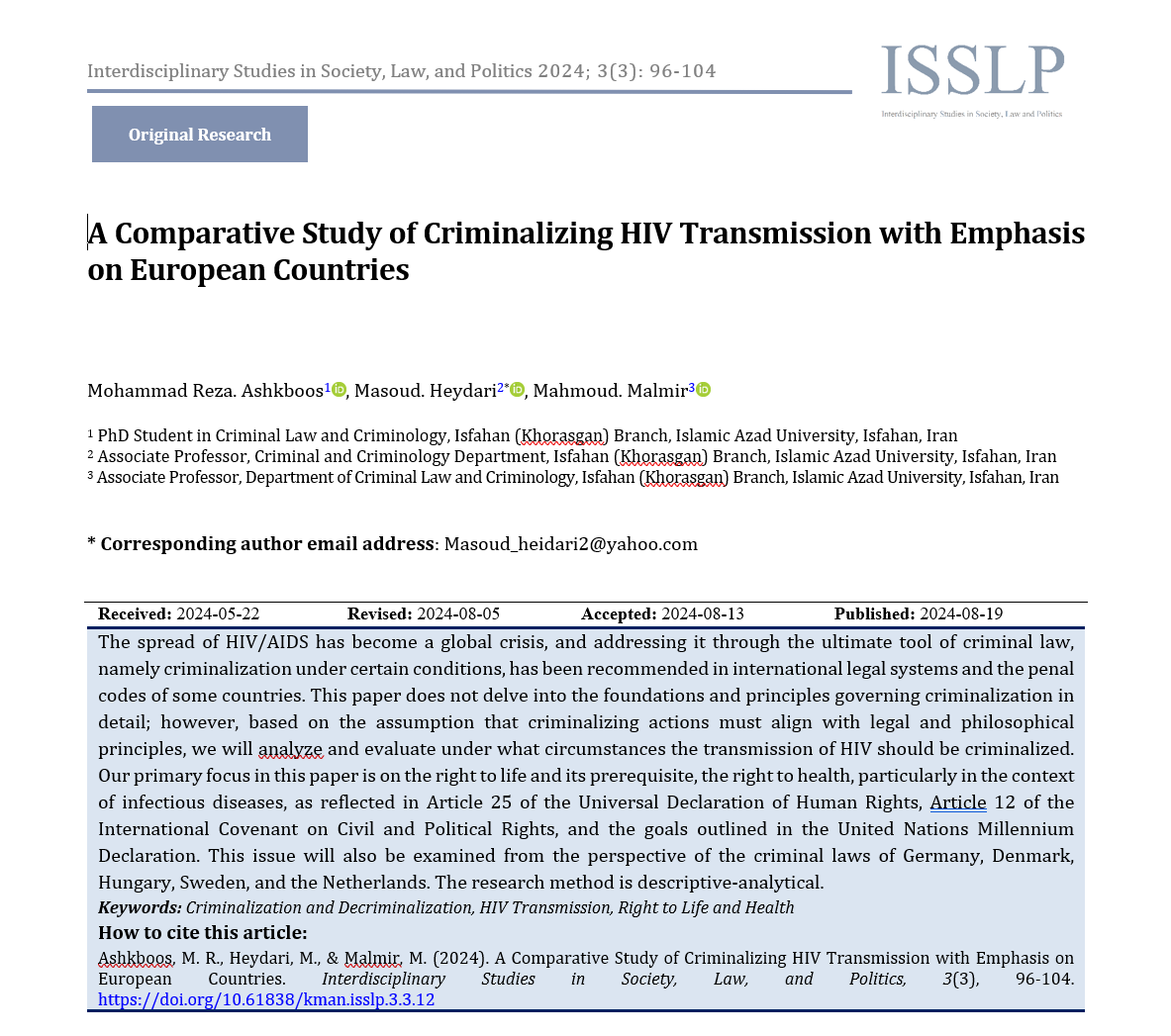A Comparative Study of Criminalizing HIV Transmission with Emphasis on European Countries
Keywords:
Criminalization and Decriminalization, HIV Transmission, Right to Life and HealthAbstract
The spread of HIV/AIDS has become a global crisis, and addressing it through the ultimate tool of criminal law, namely criminalization under certain conditions, has been recommended in international legal systems and the penal codes of some countries. This paper does not delve into the foundations and principles governing criminalization in detail; however, based on the assumption that criminalizing actions must align with legal and philosophical principles, we will analyze and evaluate under what circumstances the transmission of HIV should be criminalized. Our primary focus in this paper is on the right to life and its prerequisite, the right to health, particularly in the context of infectious diseases, as reflected in Article 25 of the Universal Declaration of Human Rights, Article 12 of the International Covenant on Civil and Political Rights, and the goals outlined in the United Nations Millennium Declaration. This issue will also be examined from the perspective of the criminal laws of Germany, Denmark, Hungary, Sweden, and the Netherlands. The research method is descriptive-analytical.
Downloads

Downloads
Additional Files
Published
Submitted
Revised
Accepted
Issue
Section
License
Copyright (c) 2024 Interdisciplinary Studies in Society, Law, and Politics

This work is licensed under a Creative Commons Attribution-NonCommercial 4.0 International License.





